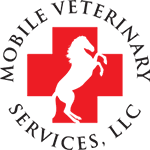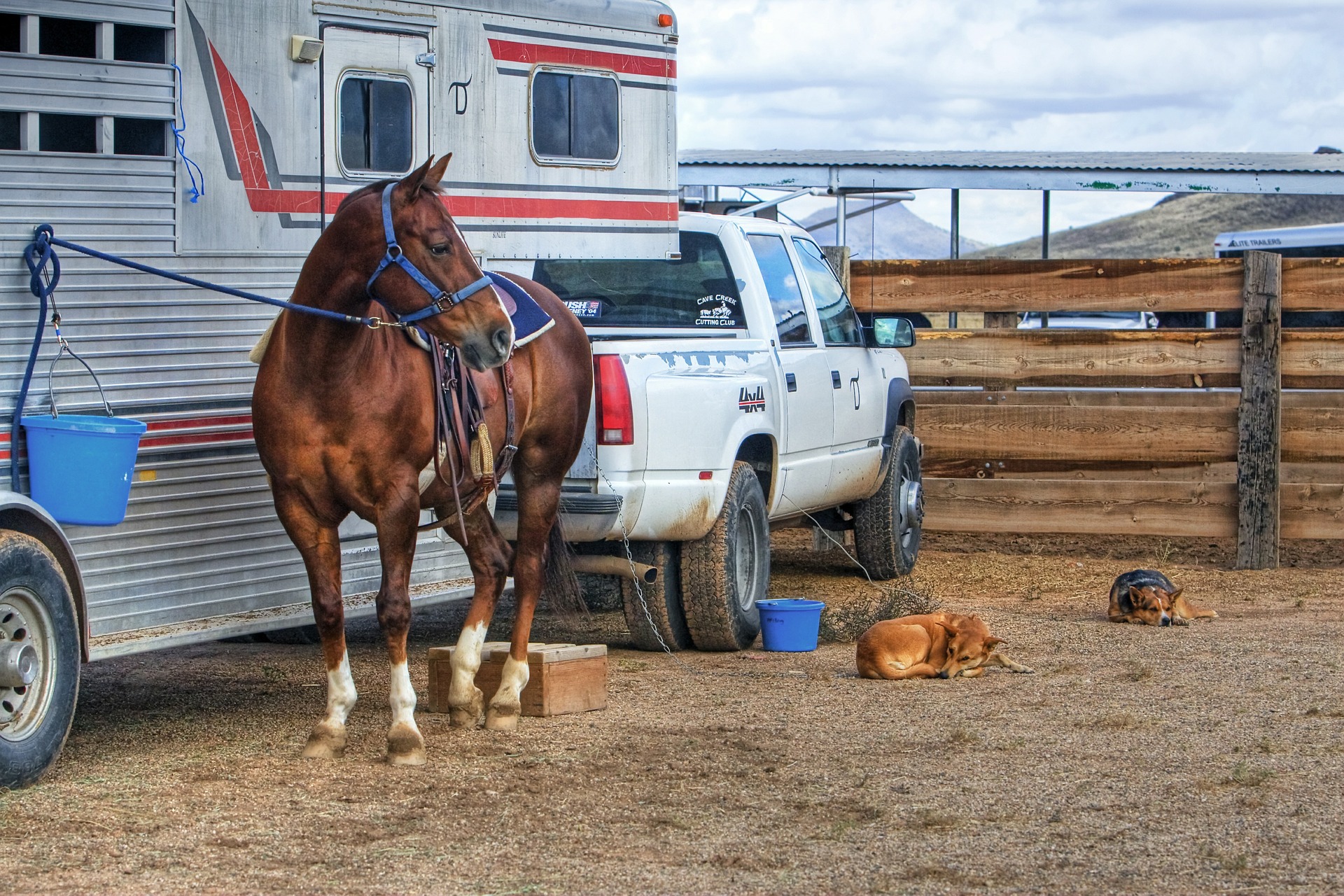The arrival of spring means long-awaited opportunities for trail riding, clinics, and horse shows. However, travel, new stabling, and the mixing of horse populations can also provide the perfect conditions for the spread of disease. With a little planning and biosecurity awareness, you can minimize potential risks to your horse.
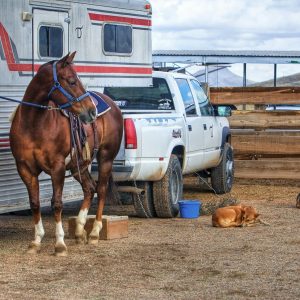
What is Biosecurity?
Biosecurity refers to the preventative measures taken to minimize spread of disease. The most commonly encountered infectious diseases include influenza (flu), rhinopneumonitis (equine herpes virus), and strangles. While many horses are vaccinated against these diseases, vaccination does not guarantee 100% protection and does not negate the need for biosecurity.
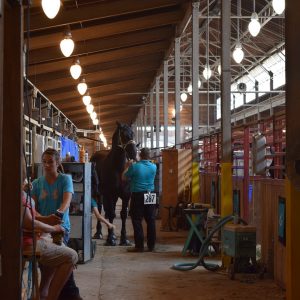
How do I take effective biosecurity measures?
Some biosecurity measures are common sense – such as not allowing your horse to have nose-to-nose contact with other horses. Other measures are more complex.
First, consider your destination. Horse show venues and campgrounds may have specific requirements for incoming horses, such as a current Coggins test, health certificate, and proof of up-to-date vaccination. Remember to keep your veterinarian apprised of your summer travel plans so that you have all required documentation prior to your departure. While it can be frustrating to manage differing requirements, remember they are put in place for the health and safety of the horse.
When arriving at a campground or show stable, examine the housing for your horse prior to unloading. Look for overall cleanliness – an area free of manure and old bedding. It’s worth asking the venue how facilities are cleaned between horses prior to your arrival. Dirt floors and other porous surfaces are much harder to disinfect since organic debris can inactivate cleaners such as bleach.
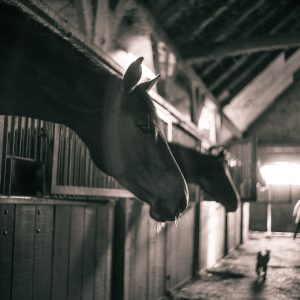
Simple and easy biosecurity measures:
- Prevent all direct contact between your horse and others (no nose-to-nose!)
- Avoid sharing equipment with others, including; tack, grooming supplies, wheelbarrow, pitchfork, etc.
- Avoid communal water sources/sharing hoses between horses. Dropping the end of the hose into multiple water buckets can transmit disease.
- Wash your hands frequently and after touching any other horses.
- Pack your horse’s thermometer. If your horse appears “off” a fever may be present before he is contagious to others.
- Don’t forget to clean and disinfect your trailer regularly too!
Wishing you a safe, happy, and healthy riding season!

